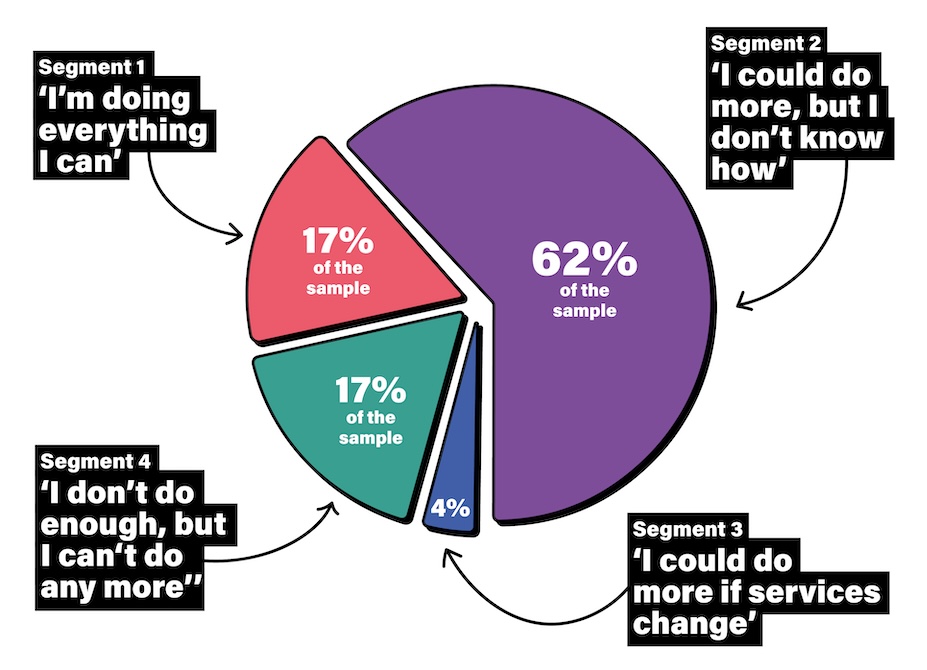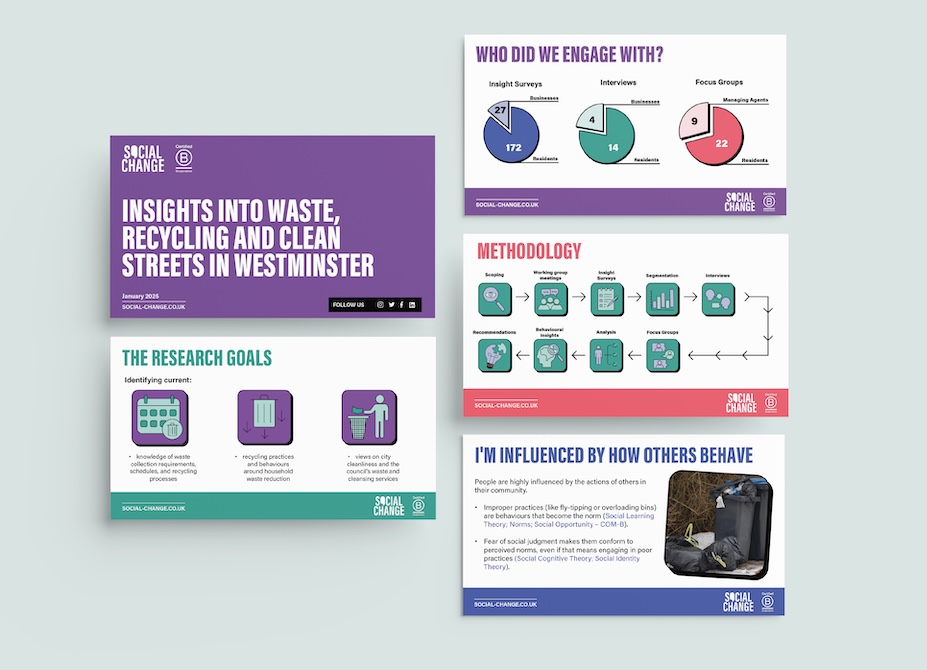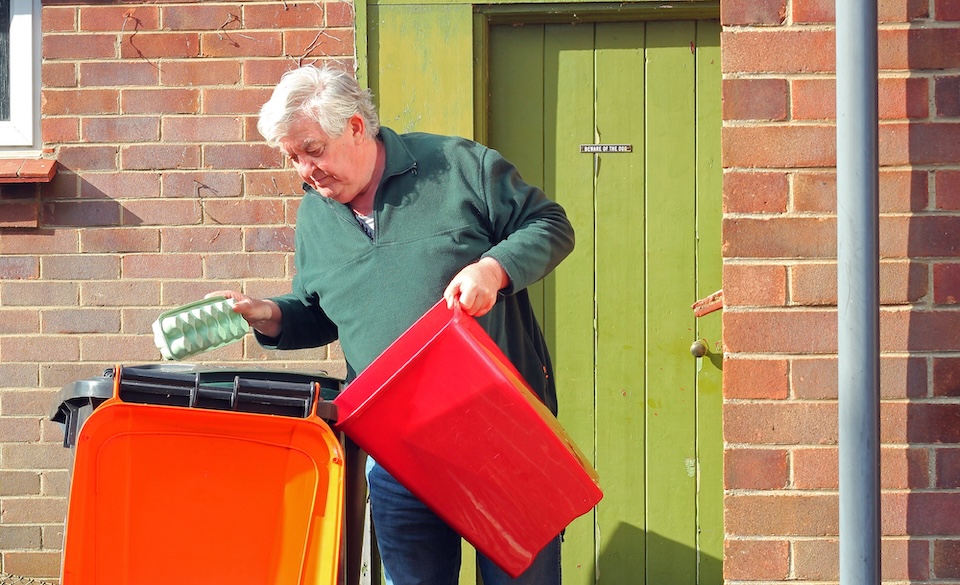Westminster City Council commissioned us to deliver actionable insights into the waste, recycling and street cleanliness behaviours of residents, businesses, and managing agents. We aimed to inform service improvements, promote environmental behaviour change and encourage a cleaner, greener and more inclusive Westminster.

The mission
To Understand Waste and Recycling Behaviours Across Westminster
Our mission was to understand the knowledge, attitudes and behaviours of Westminster’s diverse communities regarding waste reduction, recycling and city cleanliness. We looked to identify barriers and motivators, assess perceptions of council services and provide evidence to guide the council’s strategic review.

The research
A Behavioural Science Approach to Environmental Change
We applied behavioural science models, including COM-B, the Theory of Planned Behaviour, and Exchange Theory, alongside cognitive psychology principles like the Dunning-Kruger Effect, Cognitive Load Theory, and social learning. We also drew on cognitive biases such as attention and focus bias, guided by the Cognitive Bias Codex, to uncover the drivers behind waste separation and recycling behaviours. Our methodology combined scoping, working group meetings, insights surveys, segmentation, qualitative interviews, in-person and virtual focus groups, analysis and behavioural insights identification. This approach helped us to understand not only what people are doing, but why and how to design interventions that drive change. Recommendations were co-developed with residents, businesses and managing agents to ensure they were effective and meaningful for the community.
What we found
Community engagement, segmentation and identifying solution
We explored current waste and recycling practices, residents’ knowledge of council services and their openness to service changes. While awareness of recycling was generally high, we found confusion and inconsistency in actual practices. Key barriers included a lack of knowledge, convenience, language differences, and limited trust in the system. Businesses and managing agents faced additional challenges, such as service complexity and transient populations. Our segmentation analysis identified four different resident groups, each with unique motivations and barriers. Using behavioural insights and the Behaviour Change Wheel, we developed targeted recommendations focused on education, incentivisation, environmental restructuring, enabling and community engagement.
The impact
This project gave Westminster City Council clear recommendations for improving service changes and behaviours around food waste, bulky waste, recycling, and fly-tipping.
These included strategies for increasing education and awareness for residents and businesses, improving communication and signage, encouraging collaboration for bulky waste disposal and using incentives like gamification and feedback on recycling performance. Recommendations also focused on improving convenience, affordability and accessibility for waste services, alongside community engagement and visible deterrents for fly-tipping. These recommendations will help move Westminster towards a circular economy, improve city cleanliness and promote shared responsibility across all communities, and contribute to enabling Westminster to achieve its ambitions for net zero by 2040, and a fair, inclusive city for everyone.



